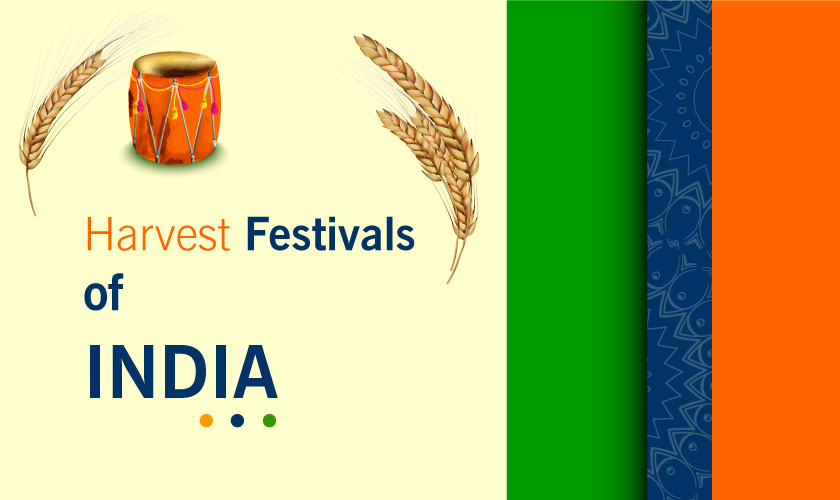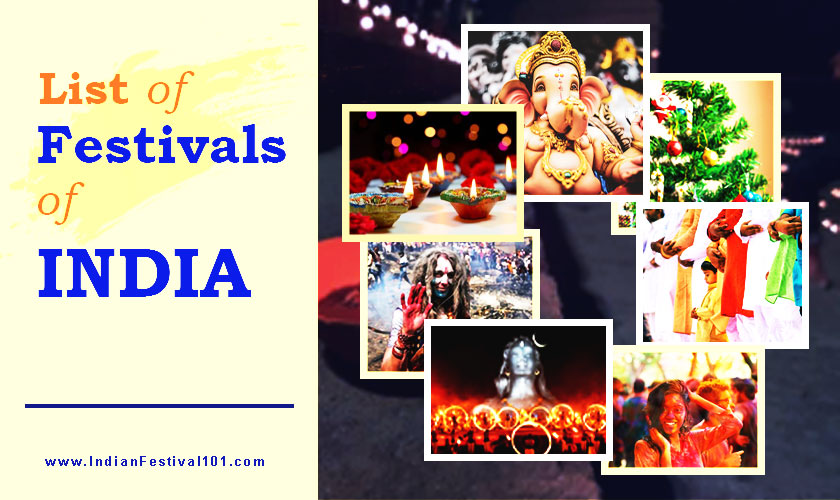Importance of Festivals in India: India, a country rich in culture and diversity, has a vibrant weave of festivals that take place all year long. Festivals hold an important place in Indians’ hearts, from the vibrant celebration of Holi to the spiritual devotion of Diwali. These joyful celebrations serve as an opportunity to preserve traditions, define social harmony, support growth in the economy, and nurture spiritual connections, in addition to uniting communities. Let’s review the importance of Indian festivals and understand why they are woven into the culture of the country.
Introduction
Festivals in India are more than just gatherings; they are deeply ingrained in the social and cultural fabric of the nation. With over 1.3 billion people belonging to diverse ethnicities, languages, and religions, these celebrations become a thread that binds everyone together.
Importance of Festivals in India
Bridging Generational Gaps
These celebrations provide a platform for different generations to come together. Elders pass on their knowledge and stories to the younger ones, ensuring that traditions are carried forward.
Social Harmony and Bonding
Festivals foster a sense of unity among communities. People from various backgrounds join in celebrations, breaking down social barriers and promoting harmony. The best thing about festivals in India is that we respect every religion, culture, and belief. You can see a Hindu celebrating Eid by visiting Muslim friends, eating delicious dishes, and spreading brotherhood. Apart from Hindu people from other communities perform cultural activities during the celebration of Diwali, Dussehra, and Holi festivals. The festival teaches us the lesson of unity in diversity and in a way celebration of the festival. The beauty of India is that we celebrate religious festivals with social harmony.
Celebrations Beyond Borders
Indian festivals are celebrated beyond national boundaries. Diwali, for instance, is celebrated by Indian communities worldwide, promoting cultural exchange. In a country with a multitude of languages and cultures, festivals act as a unifying force. They remind people of their shared heritage and values.
Also Check: List of Popular Indian Festivals
Cultural Diversity and Unity
India’s festivals are a vivid display of its cultural diversity. From the vibrant dance forms of Navratri in Gujarat to the elaborate Pongal celebrations in Tamil Nadu, each festival brings out the unique flavors of different regions.
The cultural diversity of India is a kaleidoscope of customs, dialects, and traditions. The mixed fabric of the country is tied together by festivals, which serve as connecting threads. Festivals offer a venue for people to come together, crossing regional, linguistic, and religious barriers, whether it is Navratri in Gujarat, Pongal in Tamil Nadu, or Baisakhi in Punjab. Festival celebrations encourage a sense of community and patriotism by highlighting the power of variety in unity.
Indians are deeply connected with rituals, traditions, and culture. The festivals in India create a sense of cultural unity and brotherhood. Although Indian culture is diverse in nature, we can see social harmony everywhere. The Festival gives opportunity to know our cultural diversity and traditions.
Also Read:- Diversity of Festivals in India
Preservation of Traditions and Heritage
Indian festivals act as custodians of the nation’s vast customs and traditions. These festivals, which have their roots in mythology, traditions, and ancient rites, capture the spirit of India’s cultural heritage. Festivals provide a window into the ageless customs that have been passed down through the years, whether it is the joyful dance of Garba during Navratri or the profound bathing rite of Kumbh Mela. creating a deep sense of cultural identity and serving as a reminder of our roots, they help us feel closer to our forefathers.
Amidst rapid modernization, festivals play a vital role in preserving traditional practices and rituals. They serve as a reminder of the roots from which society has grown.
Spiritual and Religious Importance
Many Indians place a high value on their religion and spirituality, and festivals provide an opportunity for religious manifestation. Festivals offer a setting for spiritual development and religious practice, whether it is the sacred processions of Ganesh Chaturthi or the fortunate lamp-lighting of Diwali. They give people a chance to reconnect with their belief in God, ask for favours, and develop the moral principles and ethics that are the basis of Indian philosophy.
Many festivals have deep spiritual roots. Diwali, the Festival of Lights, symbolizes the victory of light over darkness and good over evil. Eid is a time of reflection and gratitude for Muslims. These celebrations remind people of their spiritual essence.
Educational Value: Learning Through Festivals
The festival excitement can be seen in children during the festival season. This is the best occasion to teach them about our Indian culture and tradition. This is the time to create awareness and different norms of festivals in India. Schools organize different cultural programs events and competitions during festival season.
Indian festivals provide priceless educational opportunities in addition to opportunities for fun. By engaging in hands-on activities and listening to stories, children can learn about their cultural background, history, and mythology. Festivals offer an ideal setting for fostering curiosity, advancing cross-cultural understanding, and teaching valuable lessons. By introducing people to a variety of festivals, India’s complicated fabric of customs is better understood, which benefits people’s overall growth.
Festival plan an important role in nurturing values in children. Festivals teach children values like compassion, respect, and empathy. They learn about cultural diversity and the importance of coexistence.
Festivals often carry moral lessons and stories. Dussehra, for instance, signifies the triumph of good over evil through the story of Lord Rama. Such narratives teach valuable life lessons.
Economic Impact: Festivals Bring Business
India is the country with the second largest population in the world. Fairs and festivals come with opportunities for business personnel. Manufacturing companies, trades, and local vendors accelerate their business during the festival season through various festival offers to sell their products in the market. Festivals are the best occasion for local vendors to make some money during the festival. Thus, fairs and festivals bring smiles to every business person.
Festivals have a substantial economic impact. They boost various industries like tourism, hospitality, and local businesses, creating job opportunities and contributing to the economy.
Impact on Tourism
Festivals attract tourists from around the world. The Kumbh Mela, a Hindu pilgrimage, is known as the world’s largest gathering of people, drawing travellers and spiritual seekers.
Festival Goods, Sweets, and Decorative Items
It is impossible to overestimate the importance of festivals to India’s economy. Tourism increases during festivals as people from all over the world rush to see the beauty of cultural celebrations. The demand for traditional objects, apparel, and decorations increases during festival seasons, which is good for local businesses and for artisans, craftsmen, and traders. Additionally, festivals enhance the local economy by creating job opportunities in the hospitality industry and event management.
Conclusion
In a country as diverse as India, festivals play a pivotal role in encouraging harmony, conserving traditions, boosting social progress, and supporting spiritual growth. The celebrations are much more than just holidays. They serve as the connecting threads that bring the many parts of the country together, These celebrations are a testament to the nation’s rich heritage and the enduring spirit of its people.
FAQs
Q1: Are festivals in India only religious?
A1: No, while many festivals have religious roots, others celebrate seasons, harvests, and cultural events.
Q2: How do festivals impact the economy?
A2: Festivals stimulate various industries, boost tourism, and create job opportunities, contributing to economic growth.
Q3: Are Indian festivals only celebrated in India?
A3: No, Indian communities around the world celebrate festivals like Diwali and Holi.
Q4: What role do festivals play in modern society?
A4: Festivals bridge generational gaps, preserve traditions, and promote social harmony in today’s rapidly changing world.
Q5: How do festivals contribute to cultural learning?
A5: Festivals often carry moral lessons, stories, and cultural values, offering valuable learning experiences.




